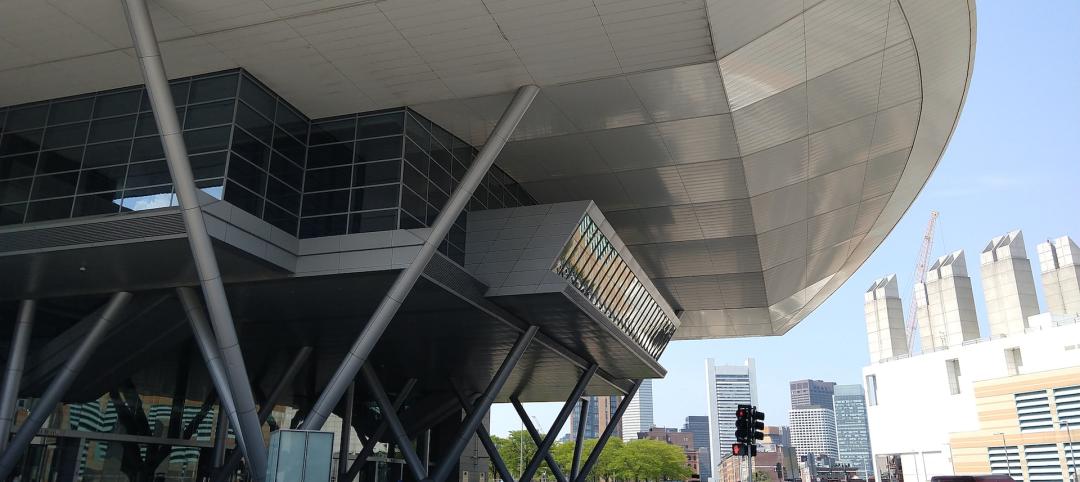BD+C: New Millennium recently announced that it was acquiring three plants from Commercial Metals Company. What is your strategy?
Gary Heasley: New Millennium is a little more than 10 years old. Our first plant was built in Butler, Ind., and in 2005, we launched our second plant, then made some acquisitions and expanded our presence in the eastern U.S. We had been planning to build a plant in the western U.S., but the economic crisis came forced us to shelve those plans.
This year, as our competitor, CMC, announced that they were exiting the joist and deck markets, we saw an opportunity to move that plan back to the forefront and expand coast to coast. We have customers that may be located in, say, Florida, who are building projects in California. That’s exactly the group we knew we couldn’t serve properly without a western presence. We went ahead with the acquisition, and we’re now ramping up those facilities. With these three new locations [Fallon, Nev., Hope, Ark., and Juarez, Mexico], we’ll better serve Texas, Arizona, New Mexico, California, all of the West and Southwest.
BD+C: When do you expect to be in production at these facilities?
GH: We’ll be hiring production crews in November. We have equipment from two plants in the East that we’ll be using to optimize the efficiencies and productivity of the three acquired plants. The communities are very excited to see us coming back, but we will ramp up gradually over time and add capacity as the market demands it.
Soon, customers in any state will be able to use us, and for many of them, we’ll be delivering product within the 500-mile radius to qualify for LEED. We’re seeing more and more requests for documentation to support LEED efforts.
BD+C: Why are you making a push to create BIM tools for your products?
GH: We saw BIM as an evolution design technology that is inevitably going to happen. Whether or not it becomes universally used, we saw that it was important to more and more customers. So we put a team on that and built our first Dynamic Joist steel joist BIM module for Tekla Structures. It’s now available on our website.
The response has been tremendous, and we’re already seeing projects designed with the tool, and getting great feedback on how it’s being used.
BD+C: How can your company help Building Teams on their projects?
GH: If we can be part of the design team early in the process, then we can bring our specialty joists to the project, either to make the project more efficient and cost effective, or to add an architectural element that would not have been available if the Building Team had just been thinking of joists in a conventional way.
For example, the other day I was in our shop and watched our team fabricate some joists with a very unique curved design. Those joists will add an architectural element to the building that could not have been achieved had we not been involved early in the project. If we are involved early, we can have an influence, in suggesting creative architectural elements, or in making sure the project is more efficiently designed. We find we can often save owners money when we have the opportunity to add value through engineering.
If you look at joists as a simple commodity, you’re not going to be able to take advantage of opportunities to use joist design to make the projects more architecturally interesting and cost-effective.
BD+C: Any other concerns in dealing with Building Teams?
GH: The RFI process. One of the real challenges we are facing now is getting RFIs answered by our customers, whether that’s the structural engineer, or the owner, or the architect—it could be anyone involved in the project, depending on the job. The RFIs come back so late that everything becomes a rush. It would be great if we could get responses back more quickly, so that we can optimize our engineering for your job and help the project team avoid delays. If RFIs are received late, engineering and fabrication can be pushed back to the point that there are problems with delivery schedules, and that’s obviously bad for everyone involved.
BD+C: How much of a factor is design-build in the steel joist industry?
GH: It’s relatively small today, but we expect it to grow as a share of the construction market, and we’re making sure that we’re in a position to be part of those teams, so we can add value to projects that are being built under the design-build model.
BD+C: What are you seeing in terms of demand for joists in this economy?
GH: The steel joist industry is essentially flat year over year from 2009. There was some slight improvement in the first half of 2010, but then we gave it all back as industry bookings slowed in July and August. It’s bumpy out there. Some months are good, some bad. In terms of an economic recovery, it’s going to be long and slow as financing markets improve, as vacancies are absorbed, and as companies are more comfortable making capital investments.
BD+C: And your thoughts on the nonresidential construction market?
GH: We think that growth is going to be slow, but generally upward, not any dramatic change in the nonresidential market. We’ve run models at a number of different growth rates but it’s very difficult to predict such factors as the availability of financing. Right now, it’s about getting the job done every day in a very competitive market—watching our costs, productivity, and maintaining the highest level of customer service. BD+C
Related Stories
Sponsored | BD+C University Course | Jan 17, 2024
Waterproofing deep foundations for new construction
This continuing education course, by Walter P Moore's Amos Chan, P.E., BECxP, CxA+BE, covers design considerations for below-grade waterproofing for new construction, the types of below-grade systems available, and specific concerns associated with waterproofing deep foundations.
Sponsored | Performing Arts Centers | Jan 17, 2024
Performance-based facilities for performing arts boost the bottom line
A look at design trends for “budget-wise” performing arts facilities reveals ways in which well-planned and well-built facilities help performers and audiences get the most out of the arts. This continuing education course is worth 1.0 AIA learning unit.
Giants 400 | Jan 15, 2024
Top 130 Hospital Facility Architecture Firms for 2023
HKS, HDR, Stantec, CannonDesign, and Page Southerland Page top BD+C's ranking of the nation's largest hospital facility architecture and architecture engineering (AE) firms for 2023, as reported in the 2023 Giants 400 Report.
Airports | Jan 15, 2024
How to keep airports functional during construction
Gensler's aviation experts share new ideas about how to make the airport construction process better moving forward.
Adaptive Reuse | Jan 12, 2024
Office-to-residential conversions put pressure on curbside management and parking
With many office and commercial buildings being converted to residential use, two important issues—curbside management and parking—are sometimes not given their due attention. Cities need to assess how vehicle storage, bike and bus lanes, and drop-off zones in front of buildings may need to change because of office-to-residential conversions.
MFPRO+ News | Jan 12, 2024
As demand rises for EV chargers at multifamily housing properties, options and incentives multiply
As electric vehicle sales continue to increase, more renters are looking for apartments that offer charging options.
Student Housing | Jan 12, 2024
UC Berkeley uses shipping containers to block protestors of student housing project
The University of California at Berkeley took the drastic step of erecting a wall of shipping containers to keep protestors out of a site of a planned student housing complex. The $312 million project would provide badly needed housing at the site of People’s Park.
Giants 400 | Jan 12, 2024
Top 10 Casino Architecture Firms for 2023
JCJ Architecture, HBG Design, Gensler, and WATG top BD+C's ranking of the nation's largest casino architecture and architecture engineering (AE) firms for 2023, as reported in the 2023 Giants 400 Report.
Senior Living Design | Jan 11, 2024
Designing for personal technology is crucial for senior living facilities
Today’s seniors are increasingly tech savvy. It isn’t enough to give senior living residents a pre-determined bundle of technology and assume that they’ll be satisfied.
Giants 400 | Jan 11, 2024
Top 40 Convention Center Architecture Firms for 2023
TVS, Populous, Arcadis North America, Gensler, and EUA top BD+C's ranking of the nation's largest convention center and event facility architecture and architecture engineering (AE) firms for 2023, as reported in the 2023 Giants 400 Report.
















